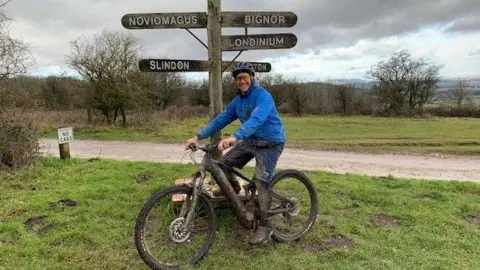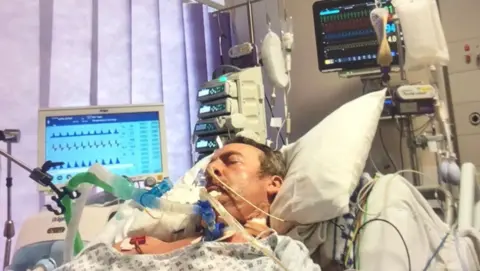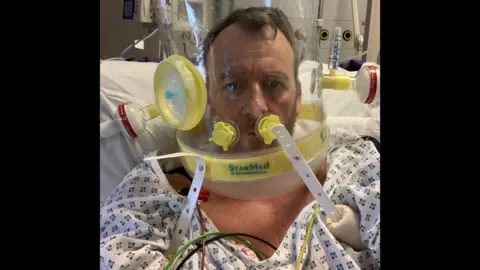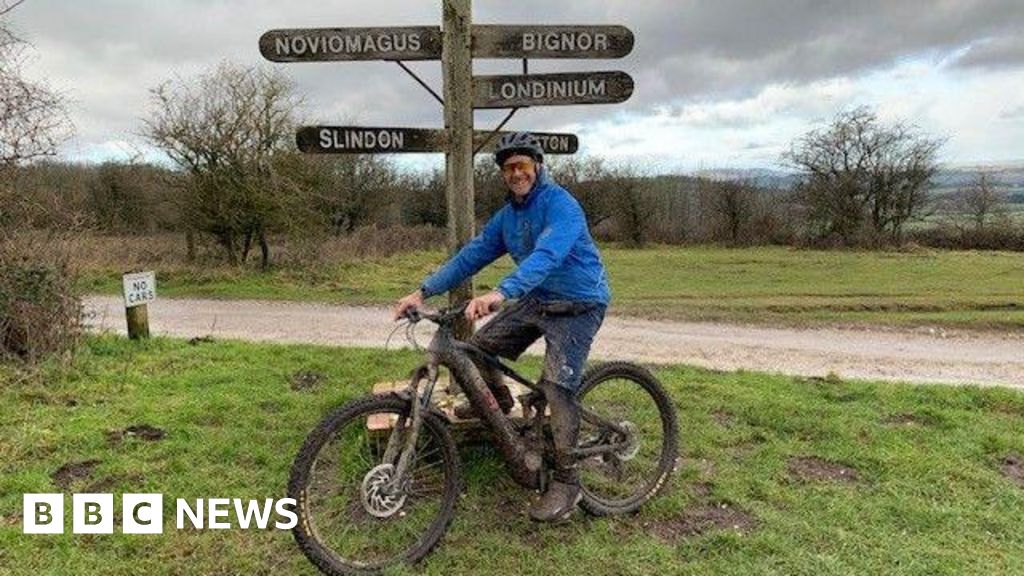BBC News, South East
 Laurence Penn
Laurence PennA West Sussex man who contracted Covid-19 in 2020 has spoken about his experience of being in an induced coma for 29 days.
Laurence Penn was one of the first Covid-19 patients in the country to be put in an induced coma in Worthing Hospital’s intensive care unit.
Mr Penn, who lives in Thakeham, told Radio Sussex that following his discharge from the hospital he was “in denial for weeks and months” that he might have died.
“It does play on your mind when you’ve been told you were close to not making it,” he added.
Mr Penn contracted the virus in early March 2020 and said it came as a “surprise” as he had “always been fit” for 54 years of age.
“I had no underlying health conditions. I went to the gym, did cross-fit training and Jujitsu,” he said.
“I travelled around the world in my work for IT managing services. I think it was a mystery to the medical team.”
Mr Penn said he started feeling ill just after he had been out for a walk with his wife and their dogs.
“I struggled to get up the hill, I then came home and collapsed on the floor,” he said.
“I struggled to go upstairs and it just got worse. I couldn’t get rid of a cough and it all became a bit of a blur and next thing I knew I was carted off to the hospital.”
 Laurence Penn
Laurence PennHe said due to his rapidly declining health, it was decided he should be placed in an induced coma to save his life.
Mr Penn said he was in hospital for a total of 47 days.
“I lost a lot of weight, I was 85kg (187 lbs) and when I was discharged I was 62kg (136 lbs),” he added.
“My vocal cords were damaged. When I was in a coma, the staff put some contraption down my throat and into my lungs to keep me alive.
“I had a collapsed vocal cord and I couldn’t walk properly. My lungs were battered, and it took weeks to get my head around what had happened. It was absolutely mind-blowing.”
Mr Penn said after he was discharged he took some time off work to recover both physically and mentally.
Exactly one year after he was in a coma, he cycled the 106-mile (170km) South Downs Way Challenge to raise awareness of the “incredible work” NHS staff did during the pandemic.
“I was so amazed by the NHS staff who helped me. I wanted to shine a light on what they do,” he explained.
 Laurence Penn
Laurence PennHe added some of the medical staff who saved his life met him at the halfway point in Storrington during the challenge.
Mr Penn said he completed the challenge in 13 hours, adding: “It took me longer to recover mentally, however.
“Talking to people is the best therapy, it helped me deal with PTSD. I talked to my wife a lot because she shouldered a lot of stress – she was told twice that I might not make it.”
He said he found exercising, such as cycling and visiting nature, helped him deal with the aftermath.
Mr Penn has also written a book, Bed No.1 From Coma to Cycling, sharing how he survived the deadly virus.

